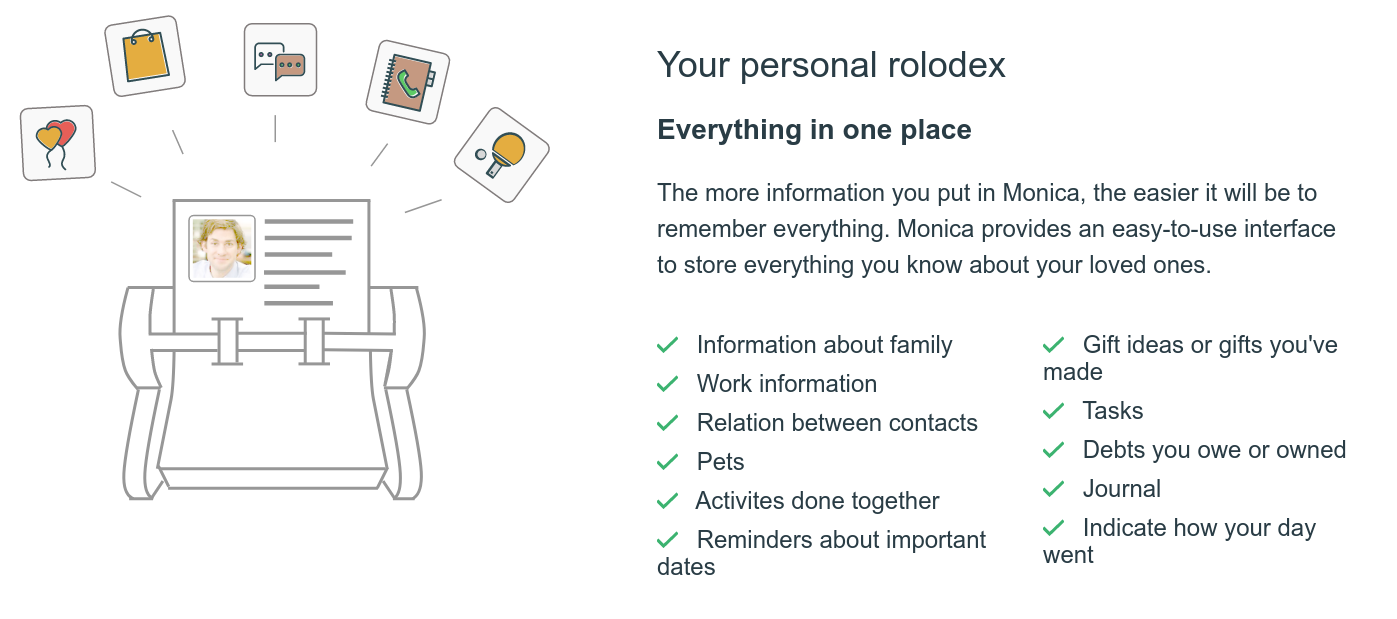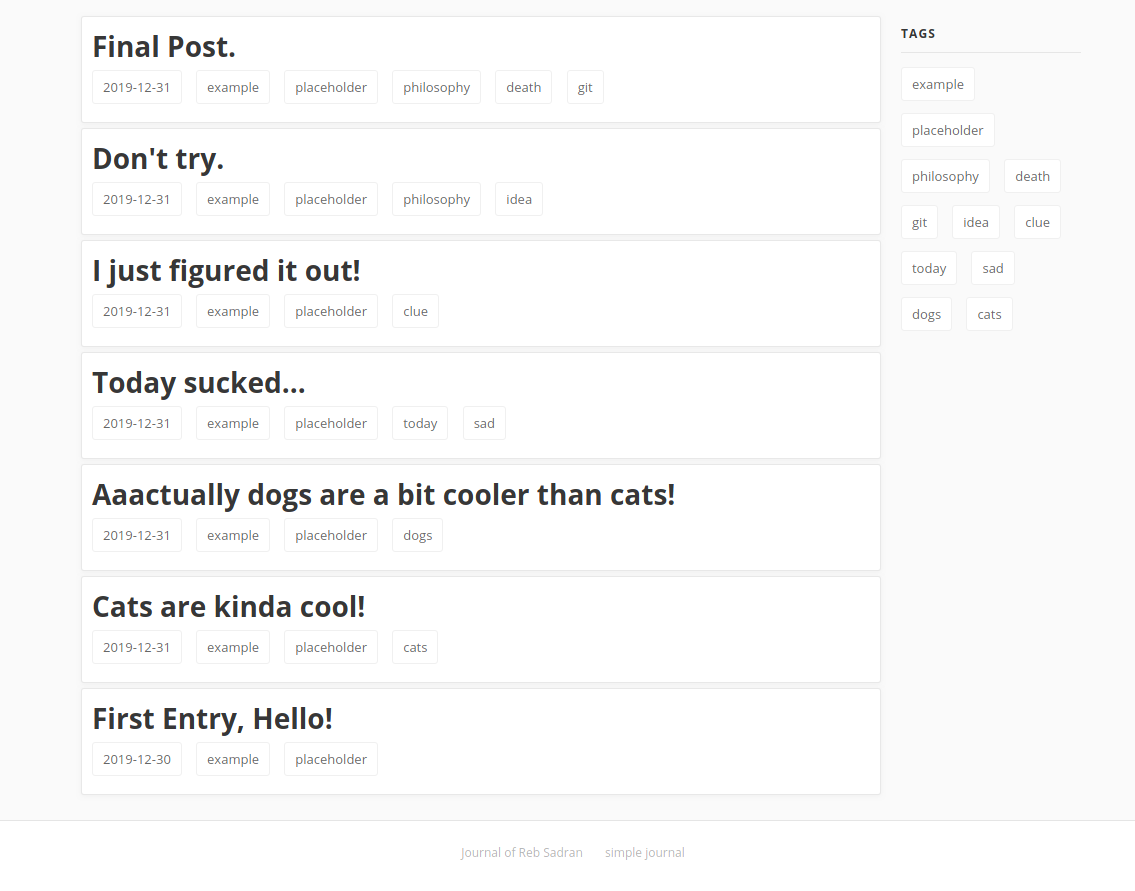I've been slowly reaching mature adulthood as I've turned 27 just now and I've constantly poked around major meta physics and philosophy question as most of people have. While I hadn't found many answers yet one thing I've got certain - how valuable memories are.
Objectively speaking our memory structure is often cited as one of the reason for our species intelligence and consciousness - an idea that has been explored in many books, shows and movies. I fully agree with this idea - what are we if not a biological machine with a collection of experiences and memories.
Unfortunately as I started to get older I feel I'm starting to forget things. Some might be pure biology - I'm vegetarian so I often skimp on B12 and my diet is lazy on iron - but most of it can be blamed on method. By that I mean my current methods of preserving memories are flawed and in need of improvement.
So this is my new years resolution - improve on my memory management!
Understanding and Improving Memory
To improve something you have to understand it - well at least a little bit. For that I've went through few resources and got a worthy summary.
There are many kinds of memory, but the one I'm interested for this topic is long term declarative memory. Without digging to much into this immense subject declarative memory refers to all memories that are consciously available - things you can remember on demand. This is further split into:
- Semantic: knowledge about external world - facts.
- Episodic: memory to specific event in time.
Episodic memory is what really interests me and especially how to improve it but semantic memory has been a bit of an obsession of mine for a long time too, so I'd like to investigate both of these mediums.
Improving Episodic Memory
According to bunch of resources there are ways to improve episodic memories but nothing is really certain so I've designed myself few episodic memory improvement strategies that I'd like to follow through this year.
Emotion
Generally memories with emotion attach to them tend to be much stronger. Obviously you can't really fake emotions to improve retention of a memory, but there are few ways you could take advantage of this fact.
One particular idea of flashbulb memory indicates that attaching feeling of scale and importance helps to retain a more vivid memory:
A flashbulb memory is a memory laid down in great detail during a highly personally significant event, often a shocking event of national or international importance.
Taking advantage of this idea in this context is a bit hard but I've noticed that merely acknowledging emotions attached to memories helps to strengthen episodic memories as well as make them just more pleasant. For example a memory at the beach - I was happy and dazzled by the scenic view but the abundance of jelly fish made me feel a bit anxious. Just acknowledging these emotions makes the memory more vivid, it's as if the emotions helps the memory to branch out to deeper parts of me.
For this section the resolution is quite simple - acknowledge the emotions attached to memories.
Drugs
The relationship between memory and drugs has always been quite conflicting but there are some clear evidence that drugs can improve it.
A 2015 meta-analysis of high quality evidence found that therapeutic doses of amphetamine and methylphenidate improve performance on working memory, episodic memory, and inhibitory control tests in normal healthy adults.[1]
[1] - https://repository.upenn.edu/neuroethics_pubs/130
Unfortunately most of episodic memory enhancing drugs are quite hardcore and unsurprisingly are developed to fight against various serious diseases like Alzheimer's or Parkinson's. I've tried digging around but every episodic memory drug seems to be quite hardcore messing of proteins and neurons which means any sort of recreational or supplemental usage is not worth it.
However malnutrition is clearly attributed to episodic memory (and memory in general) quality. Clearly not many people reading this blog are not suffering from malnutrition, right? Well I've been doing yearly blood tests and taking along everyone I could talk into it with me and you'd be surprising - almost everyone was missing something. Personally my last years test was low on iron, B12 and vitamin D - I could clearly see my memory improve after sorting this out within few months.
My resolution for this section is simply to take care of nutrition better - more varied diet, some supplements and general awareness that the biochemistry in my body is important for my self.
Recall
By far the most common way of strengthening episodic memories is recalling the memories and everything attached to them. Basically the more you remember the memory the more it gets stuck in your head.
I'll be focusing on this the most in my approach - designing exercises to efficiently and accurately recall memories seems like the most effective improvement strategy.
Being a software nerd that I am I'll start my subject with a bunch of software tools that can help.
Monica - Personal Contact Assistant
First I'd like to start out with Monica - a personal assistant web app where you can create contacts and keep track of experiences and events.
This tool is not only great for recalling memories but for managing contacts as well. It helps you to be a better friend, coworker or even a family member - historical information makes it easier to care!
I've already been using Monica a bit but my goal here is to incorporate it even more into my routines.
Photography and Video
Second tool so to speak is simply taking more photos. I love photography and there's an immense memory capture value here. Just scrolling through instagram stories or snapchat archives makes for a really fun and fulfilling experiences. Needless to say capturing visual moments is a brilliant recalling tool and I want to do more of it.
My currently tool usage for this medium is as follows:
- Instagram Feed - feed of my own photos, it's more of a collage or a CV of my past self to my future self.
- Instagram Stories and Snapchat Archives - feed of my activities, snippets of various events and adventures.
- Photography on Pixelfed - most interesting photography experiences go here.
- Photos and Videos - Feed of my bigger events. I like to edit videos and photos but it's rather time consuming so I'm reserving bigger events.
For storing photos and videos on cloud the biggest challenge is actually curating the media to make recalling a streamlined and pleasant experience.
For that I'm using Pcloud cloud storage and dedicate few minutes every weekend to clean up auto-uploads for a more pleasant recalling experience if I do want to go back and look through my photos.
There are applications which help to curate your feeds by generating stories of what it thinks are most important bits - this helps immensely if you don't curate your albums by hand. I haven't researched this thoroughly enough so one of my resolution goals is to categorize my photos better. For that I'll be investing more time with Darktable 3.0 release and go from there.
Journal
An obvious way to strengthen recalling is to start a journal (aka diary or log book). Not only it can be therapeutic way to relieve your mind and organize your thoughts but it's a great tool for improving memory too. Recalling memories right after they happened is a sure way to strengthen them, to add you can easily revisit these memories and recall them at any time given that your logbook system is properly indexed.
I love static site generators and pelican in particular thus I've started my log book as a local static website. Pelican allows me to categorise my entries by tags, date and any other additional meta fields allowing easy recall to any specific entries.
For this I've developed pelican-journal - a pre-made pelican project designed for tag-based journaling.
Exercise, Meditation and Fasting
There a sufficient amount of evidence that exercise, meditation and even occasional fasting helps to improve memory. However I've struggling integrating exercise into my routine.
Often I find exercise exciting at first but lately it has been failing to enter my routine. I identified few causes:
- Lack of visible progression.
This is a bit difficult to address as the progression tends to slow down after initial two months or so during which you can upgrade your weights every few visits. After a while, however, I feel that I'm hitting a barrier of X kilos and lose interest.
For that my resolution is tracking the progression in notes: weight, diameters and strength. - Pushing for too long gym visits.
I've been a bit of a victim of peer pressure to stay in gym longer than I really want to which really just kills my interest. I find 45 minutes to be a sweet spot for me.
My resolution in this case is to push myself less. - Timing.
This has been the hardest to figure out. When to go to gym? Sometimes I enjoy mornings, sometimes I enjoy evening but constant mixing of gym times messes up my routine.
For this I've decided to focus on 4-5 o'clock. Hit the gym for an hour and just in time to catch early Thai sunset for after-gym recreation.
For mediatation but I've been struggling to find enjoyment in it. I usually pick it up for few weeks and then lose interest. I've tried apps like headspace without much luck. However it only takes 5-10 minutes, I really need to give it a proper go.
Summary and Further Research
For 2020 I've decided to strengthen my episodic memory through: taking more pictures and organizing them better, keeping track of contacts and events using Monica assistant and keep writing daily or at least semi-daily journal.
There seems to be a lot of information on the internet and I'm still on the lookout for possible improvement strategies but so far I'm satisfied with few approaches I've described here. For further improvement I have my eyes on magnetic memory method - seems like memory course but the author seems to be quite legit their article on episodic memory was surprisingly well writen, though I'm not very trustworthy of self-help salesmen and the name "magnetic" doesn't give much credibility but based on that article it might be worth investigating further.
Happy 2020
Whoever read this, enjoy the new year! Hopefully you found some useful material in this article to make this year better :)

